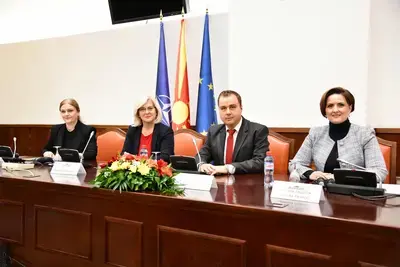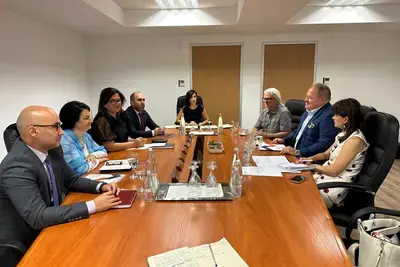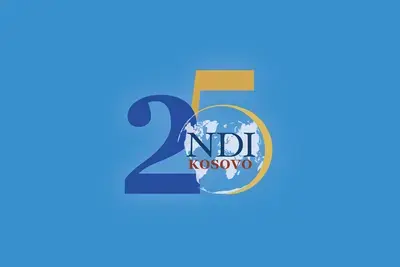
Success Story
Leading Women Activists Prepare for Macedonia’s Parliamentary Elections
“Small things make big things happen, and this event reminded me of that.” This comment from a participant who attended NDI’s interactive weekend training session in Ohrid, Macedonia, reflected the elevated mood of her peers. Between December 11 and 13, nearly 100 women from 16 political parties participated in the first session of the Women in Politics training series, which focused on the 2016 parliamentary elections. The series is intended to prepare more women to run for and win national and local political office. Notably, NDI’s multi-partisan approach to training women who are leaders within their parties is a counterbalance to partisan strife that has slowed the country’s democratic progress.
In the past year, Macedonia has seen several public protests both in favor of and against the government, resulting from accusations of illegal government-led wiretapping. Opinion polls indicate that more than half of citizens think their domestic political situation is “intense and uncertain.” With early parliamentary elections being held in April 2016, political parties must field candidates that are ethical, responsive and collaborative.
NDI’s work with political parties and civic groups to increase women’s political participation is not for the sake of achieving gender equality alone. Global research shows women elected officials are more likely to “work across the aisle” than their male counterparts, and more likely to address issues important to constituents. In many countries around the world, cross-party groups of women have united to pass democratic reforms, including in Sri Lanka, where NDI supported a multi-partisan group of women parliamentarians in advocating for and passing legislation for the common good. In Macedonia, NDI seeks to build women’s skills as candidates and representatives, providing them with practical skills, comparative experience and a strong ethical foundation to increase gender equity in representation and the quality of politics overall.
During the December training session, participants engaged in collaborative activities related to developing messages for voters and running social media campaigns. NDI provided examples of how women contribute to the political process in Macedonia and internationally, fostering discussion about opportunities for cross-party collaboration. One participant noted after the vibrant discussion, “I came to a conclusion: in the name of something that concerns everyone, we are all the same!” Participants also explored political ethics by engaging in a modified version of the game “Scruples,” assessing potential responses to political scenarios. The ethics session built upon global work NDI has done to promote political ethics, including creating sample codes of conduct for parliaments and MPs.
NDI maximized the resources available to women potential candidates by engaging four funders to support the Women in Politics training series. In 2014 and in cooperation with NDI, the Embassy of France commissioned a domestic think tank, Reactor, to research and map women’s political opportunities to inform parties about the advantages of running women candidates. The British Foreign and Commonwealth Office and USAID jointly sponsored meeting and material costs to train women MP candidates in 2015 and 2016; and in mid-2016, the Embassy of the Netherlands will support similar sessions for women mayoral candidates to prepare them for next year’s municipal elections.
As the session concluded on December 13, the energized and united participants posed for a picture wearing red ribbons to demonstrate their support for the UN’s “16 Days of Activism Against Gender-Based Violence,” a subject that is at the core of a current campaign led by NDI’s Gender, Women and Democracy team. The photo of nearly one hundred women political leaders was picked up by the Macedonian Information Agency and widely distributed, a sign of unity and collaboration in a time of partisan rancor. As one participant wrote in her evaluation, “the training was very useful from an educational aspect, but mostly because of the possibility to connect on a personal level with women from different parties.”
Published on January 15, 2016.



